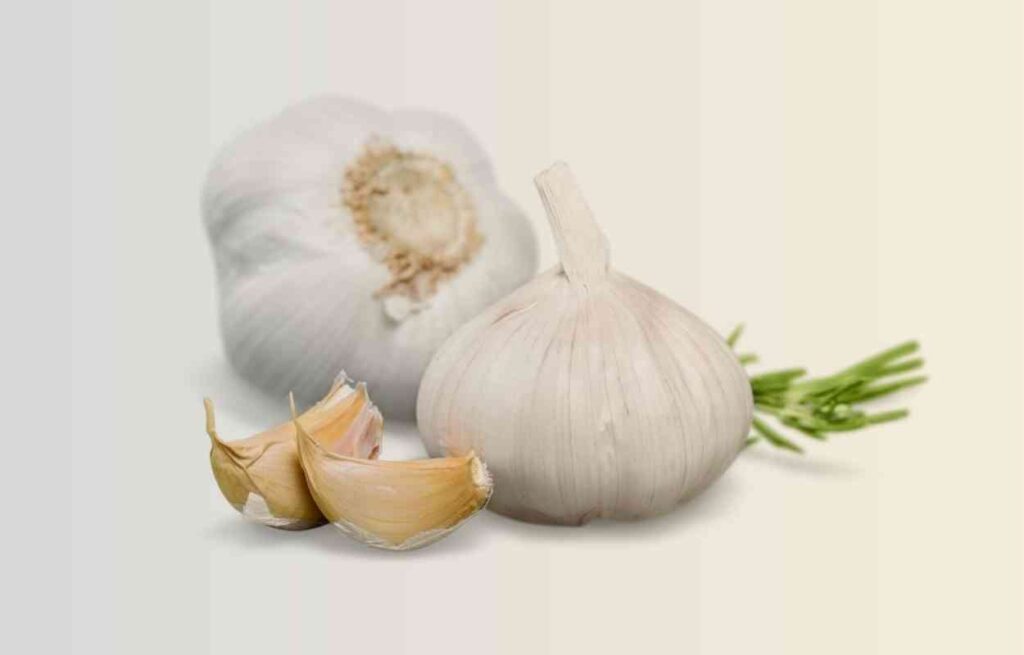How Much Does a Garlic Clove Weigh?
Have you ever wondered about the weight of a humble garlic clove? It may seem like a trivial question, but the weight of this small ingredient can actually have a big impact on your cooking.
Whether you’re a passionate home cook or a professional chef, knowing the weight of a garlic clove can help you achieve perfect flavor and balance in your dishes. From creamy pasta sauces to aromatic stir-fries, garlic adds a distinct punch to recipes around the world. But how much does a garlic clove weigh?
The weight of a garlic clove can vary, but on average, it typically weighs around 3 to 7 grams. This serves as a useful benchmark for gauging the weight of individual cloves. However, it is essential to acknowledge that these figures are estimations, subject to variation influenced by various factors. Larger cloves may weigh over 10 grams, while smaller ones can weigh as little as 1 gram.
The weight range allows for flexibility when incorporating garlic into culinary preparations or estimating ingredient quantities.

Understanding the Weight of Garlic Cloves
Garlic, known scientifically as Allium sativum, is a member of the onion family and is widely used in cuisines worldwide. It consists of multiple cloves, each enclosed in a papery skin.
The weight of a garlic clove can vary depending on various factors, including the variety of garlic, its age, and the conditions in which it was grown. The weight of a garlic clove ultimately determines its size and intensity of flavor, making it a crucial consideration in cooking.
When it comes to understanding the weight of garlic cloves, it’s important to note that garlic bulbs are made up of multiple cloves, typically ranging from 10 to 20 cloves per bulb.
Each individual clove varies in weight, and the total weight of the bulb can also differ depending on the size and number of cloves it contains. This means that the weight of a garlic clove can vary significantly, but there are average weights that can serve as a useful reference.
Factors That Affect the Weight of Garlic Cloves
Several factors can affect the weight of garlic cloves. Firstly, the variety of garlic plays a role. There are two main types of garlic commonly found: hardneck garlic and softneck garlic.
Hardneck garlic varieties, such as Rocambole and Porcelain, tend to have fewer, larger cloves with a stronger flavor. Softneck garlic, including Artichoke and Silverskin, generally have more, smaller cloves and a milder taste.
Another factor that influences the weight of garlic cloves is the age of the garlic bulb. Young garlic bulbs typically have smaller cloves, while mature bulbs tend to have larger cloves.
The conditions in which the garlic was grown, such as soil quality and climate, can also impact the weight of the cloves. Garlic grown in nutrient-rich soil and cooler climates may yield larger cloves compared to those grown in less favorable conditions.
How Much Does a Garlic Clove Weigh: Average Weight of a Garlic Clove
While the weight of garlic cloves can vary, there are average weights that can provide a useful benchmark. On average, a single garlic clove weighs around 3 to 7 grams.
However, it’s important to note that this is just an estimate, and the actual weight can differ depending on the factors mentioned earlier.
Larger garlic cloves can weigh up to 10 grams or more, while smaller cloves may weigh as little as 1 gram.
How to Measure the Weight of Garlic Cloves?
Measuring the weight of garlic cloves is relatively simple. All you need is a kitchen scale. Start by peeling off the papery skin of the garlic clove, making sure to remove any excess skin or dirt.
Place the clove on the scale and record its weight. Repeat the process with multiple cloves to get an average weight, as individual cloves can vary in size. This method allows you to accurately measure the weight of garlic cloves for precise cooking measurements.
Uses of Different-Sized Garlic Cloves
The weight and size of garlic cloves can impact their uses in recipes. Larger cloves tend to have a more intense flavor and are suitable for dishes that require a strong garlic presence.
They work well in marinades, sauces, and dishes where garlic is the star ingredient. Smaller cloves, on the other hand, have a milder taste and are ideal for recipes that call for a subtle garlic flavor. They can be used in salads, dressings, and recipes where garlic needs to complement other ingredients without overpowering them.
It’s worth noting that the size of the garlic clove can also affect the texture of the dish. Larger cloves may leave more noticeable garlic pieces, while smaller cloves can blend in more seamlessly. Consider the desired texture and intensity of flavor when selecting the right-sized garlic clove for your recipes.
Tips for Selecting the Right-Sized Garlic Clove for Recipes
When it comes to selecting the right-sized garlic clove for your recipes, there are a few tips to keep in mind. Firstly, consider the flavor profile you want to achieve. If you’re aiming for a bold garlic flavor, opt for larger cloves.
Conversely, if you prefer a milder taste, choose smaller cloves. Additionally, pay attention to the recipe instructions. Some recipes may specify the size or weight of garlic cloves to ensure consistent results.
Another tip is to take into account the cooking method. If you’re planning to mince or chop the garlic, smaller cloves may be easier to work with. On the other hand, if you’re roasting whole cloves or using them as a garnish, larger cloves can provide a more visually appealing presentation.
Don’t be afraid to experiment with different-sized garlic cloves to discover your preferred flavor and texture combinations.
Common Misconceptions About Garlic Clove Weight
There are a few common misconceptions about the weight of garlic cloves that are worth addressing. One misconception is that bigger cloves are always better.
While larger cloves can offer a stronger garlic flavor, they may not be suitable for every recipe. It’s important to consider the balance of flavors in your dish and choose the appropriate clove size accordingly.
Another misconception is that the weight of garlic cloves directly correlates with their quality. While larger cloves may be visually appealing, smaller cloves can still pack a punch in terms of flavor.
The size of the clove does not necessarily indicate its quality or taste. Ultimately, it’s the freshness and variety of the garlic that play a significant role in its flavor profile.
Conclusion
In conclusion, the weight of a garlic clove is an important factor to consider in cooking. Understanding the weight and size variations of garlic cloves allows you to achieve the desired flavor and balance in your dishes.
While the average weight of a garlic clove is around 3 to 7 grams, individual cloves can vary significantly. By measuring the weight of garlic cloves and selecting the right-sized clove for your recipes, you can enhance the flavors of your dishes and bring out the best in this tiny powerhouse ingredient.
So, next time you reach for a garlic clove, remember that its weight holds the key to unlocking a world of culinary possibilities. Happy cooking!
Contents
- Understanding the Weight of Garlic Cloves
- Factors That Affect the Weight of Garlic Cloves
- How Much Does a Garlic Clove Weigh: Average Weight of a Garlic Clove
- How to Measure the Weight of Garlic Cloves?
- Uses of Different-Sized Garlic Cloves
- Tips for Selecting the Right-Sized Garlic Clove for Recipes
- Common Misconceptions About Garlic Clove Weight
- Conclusion
